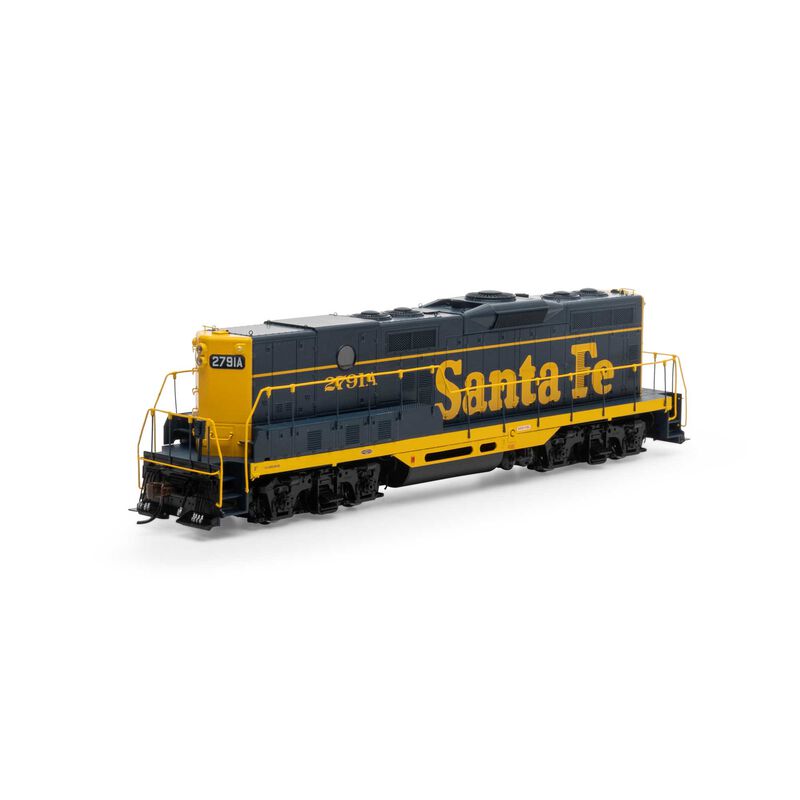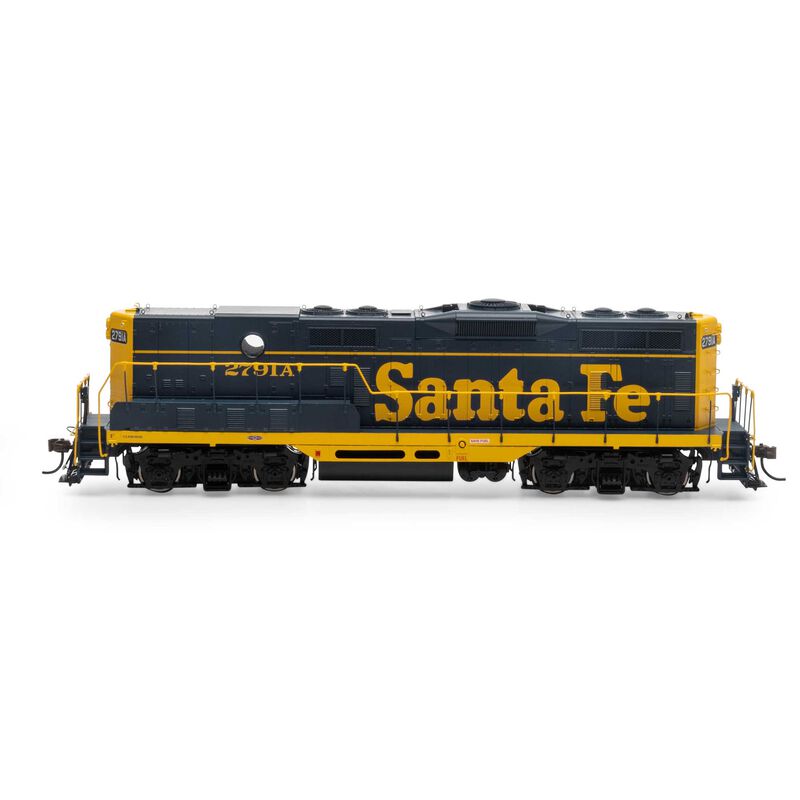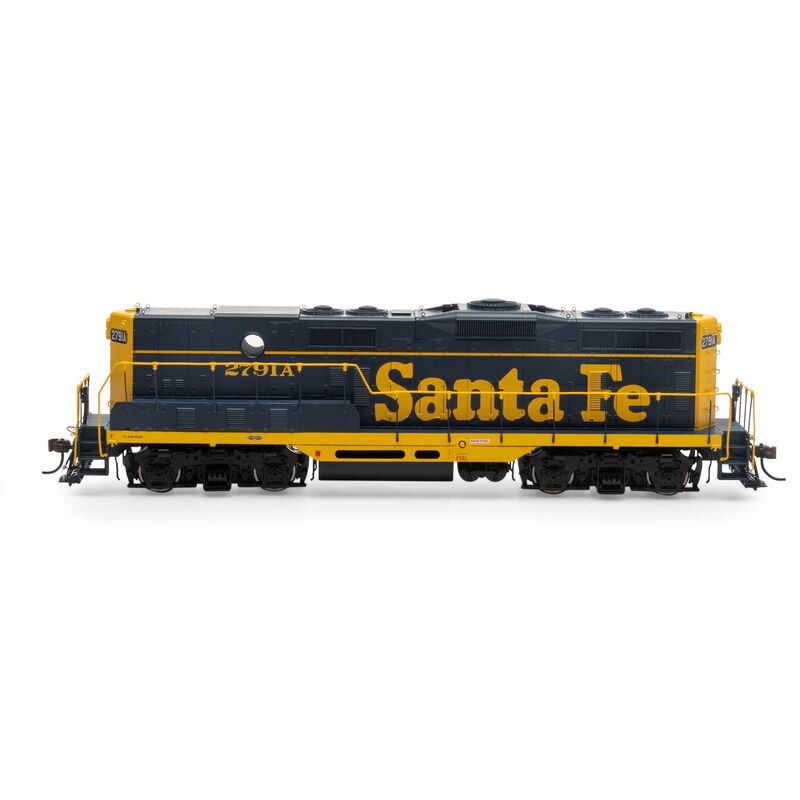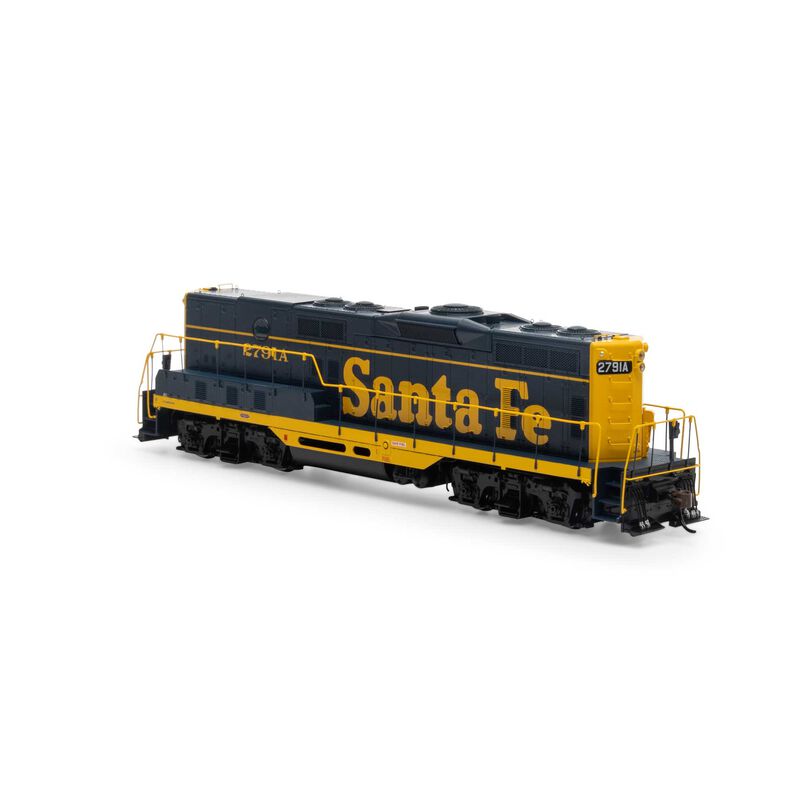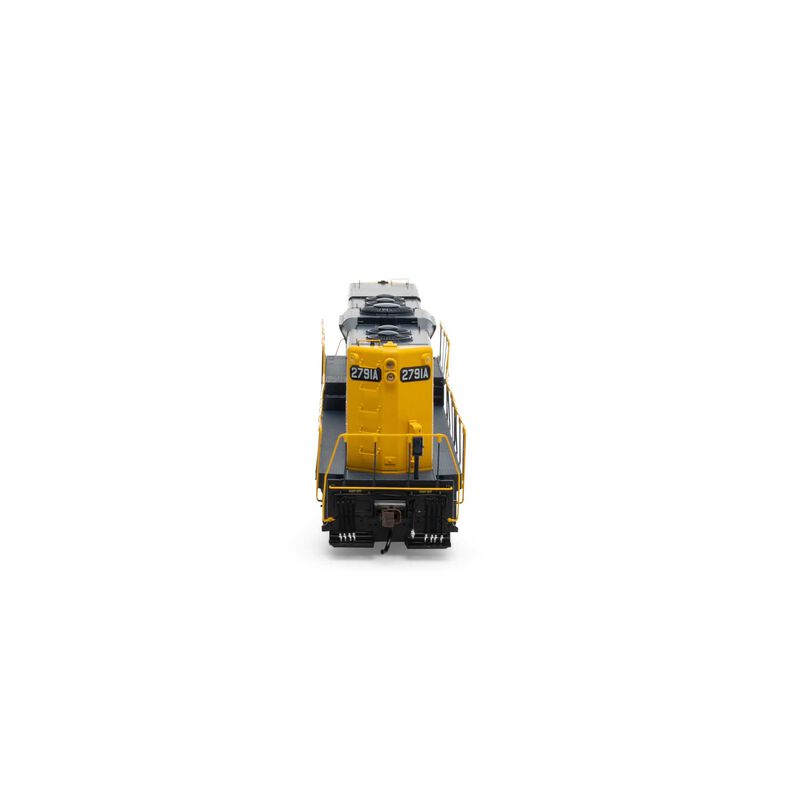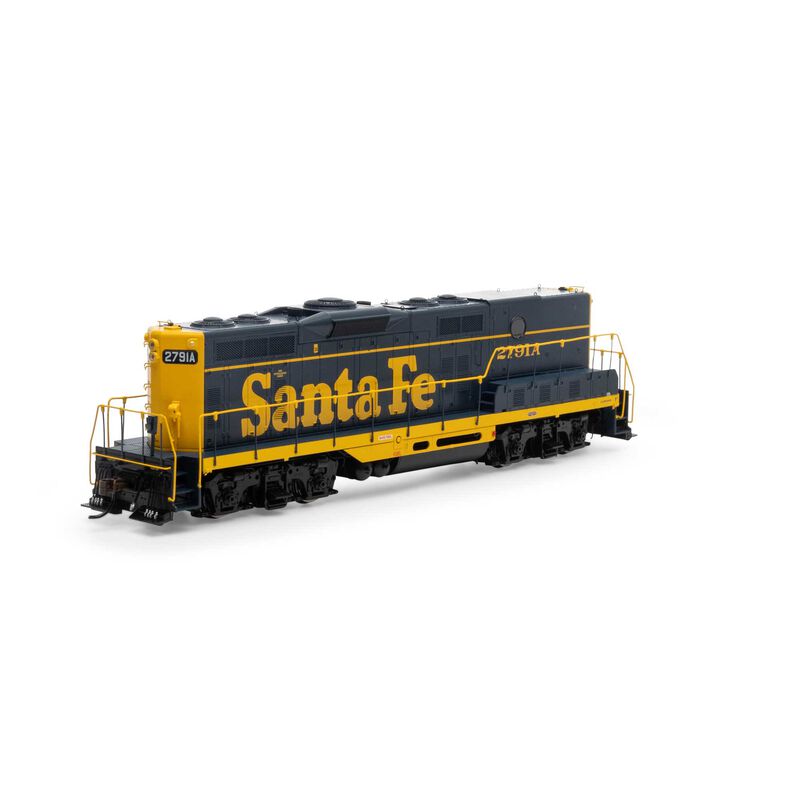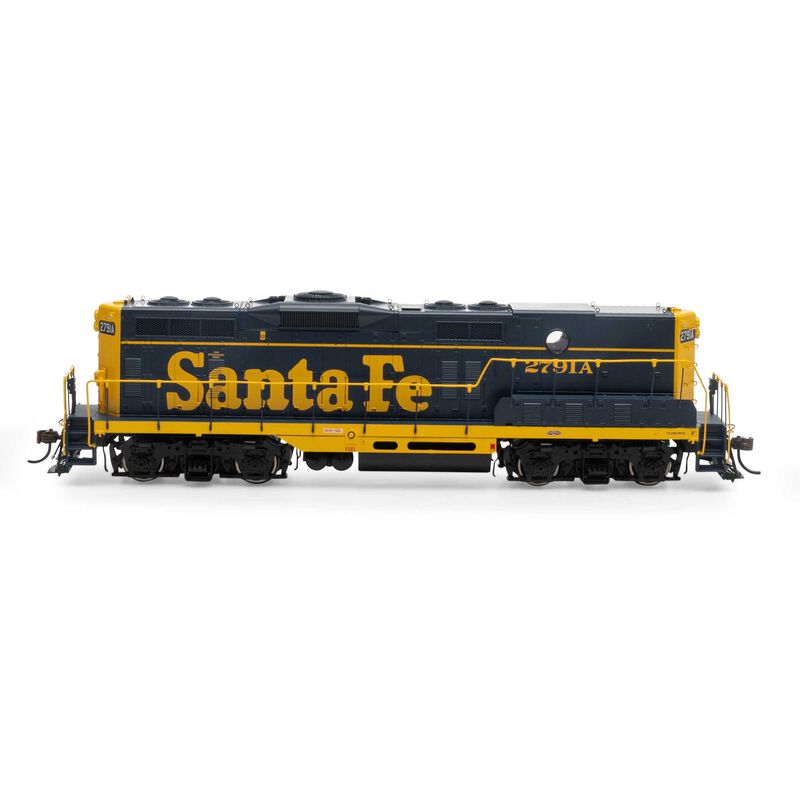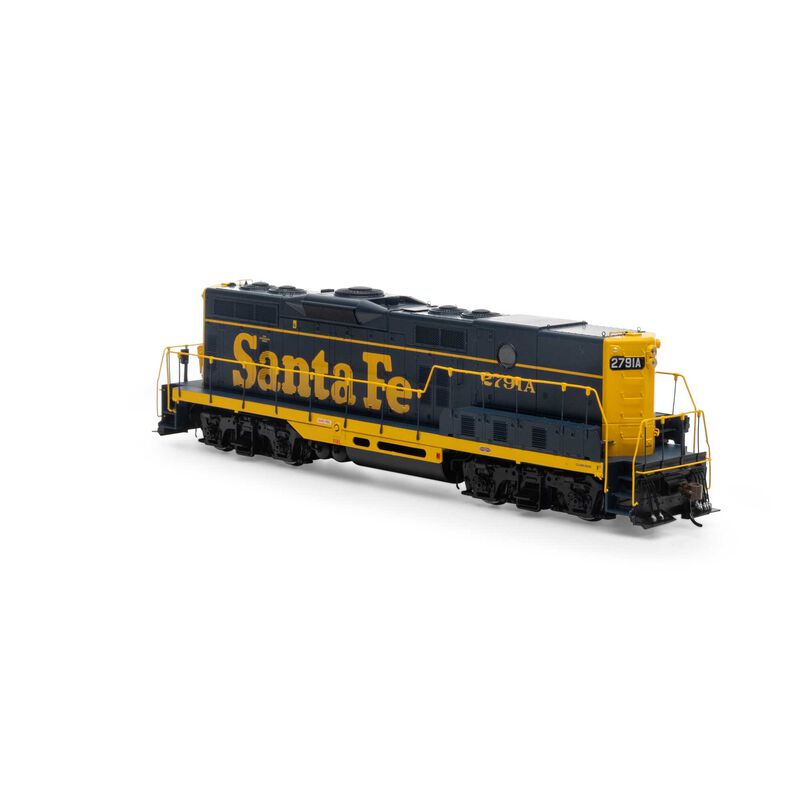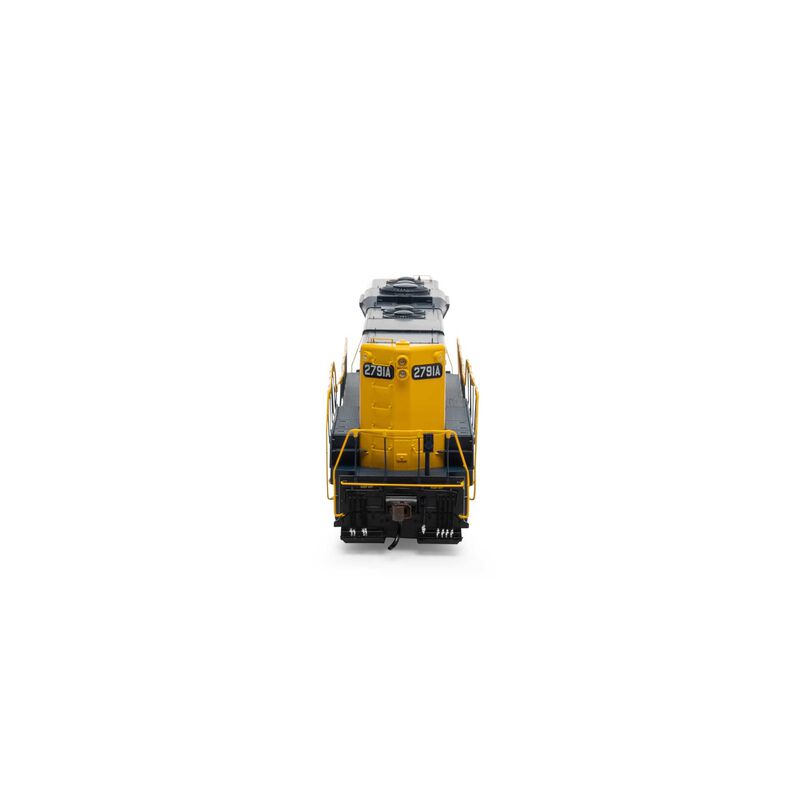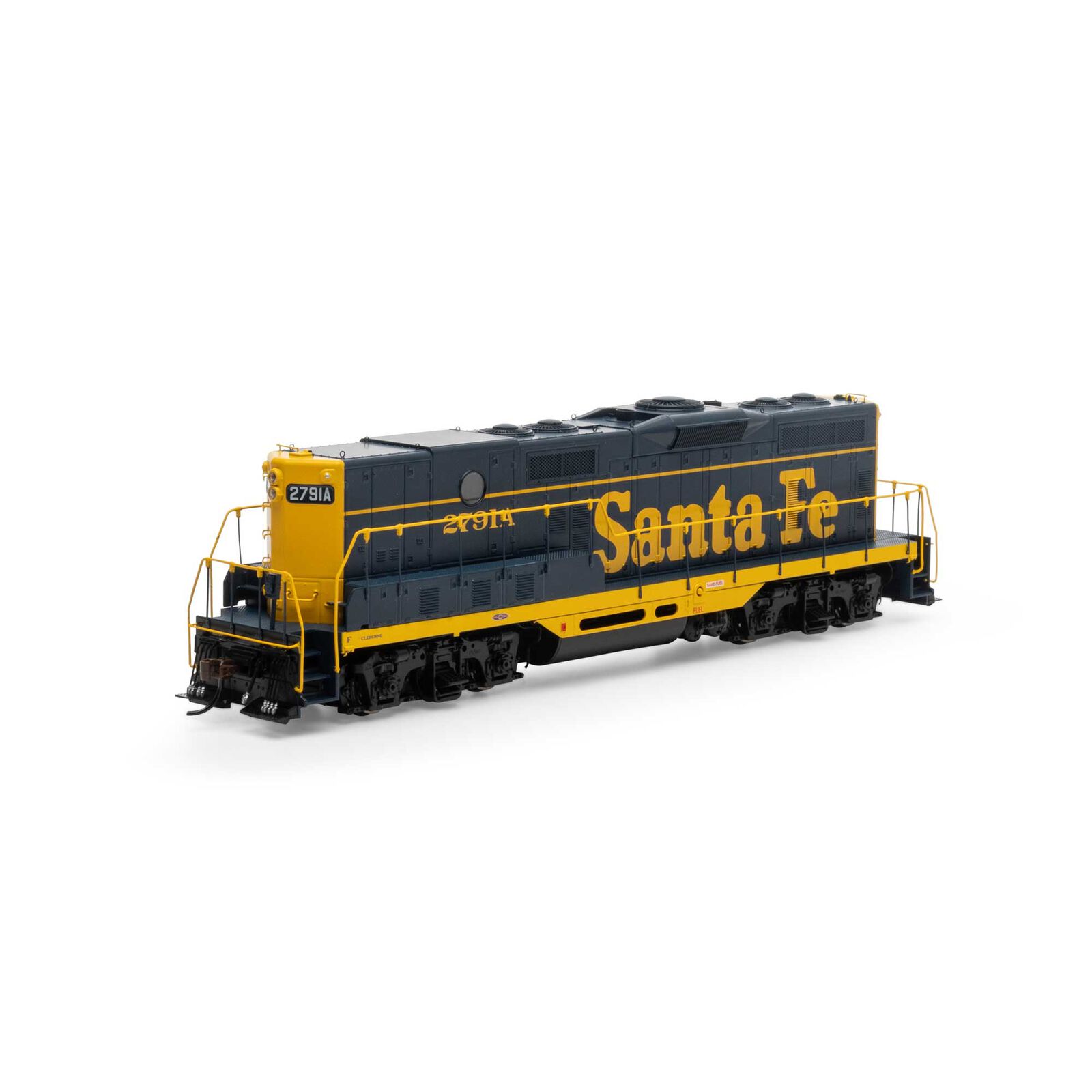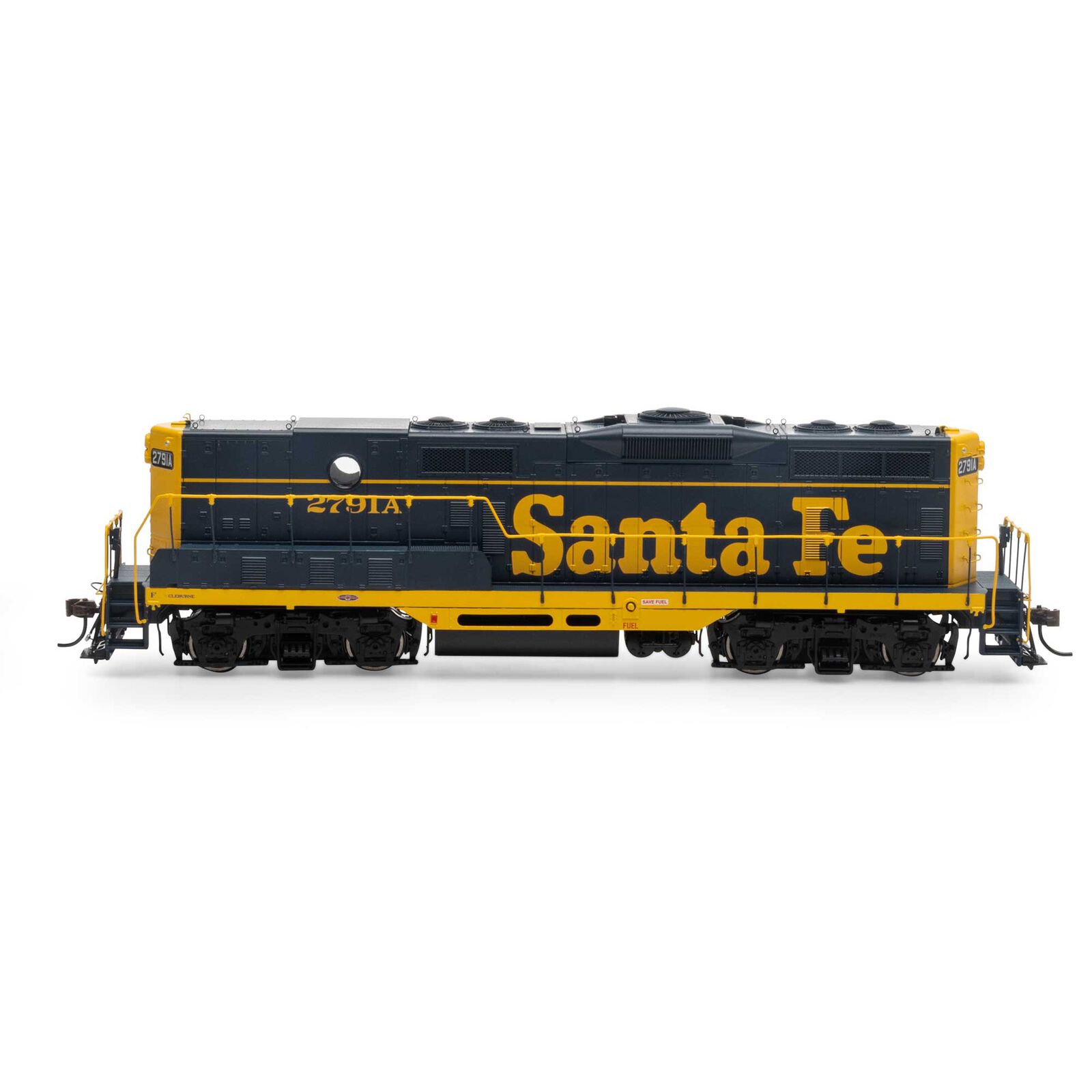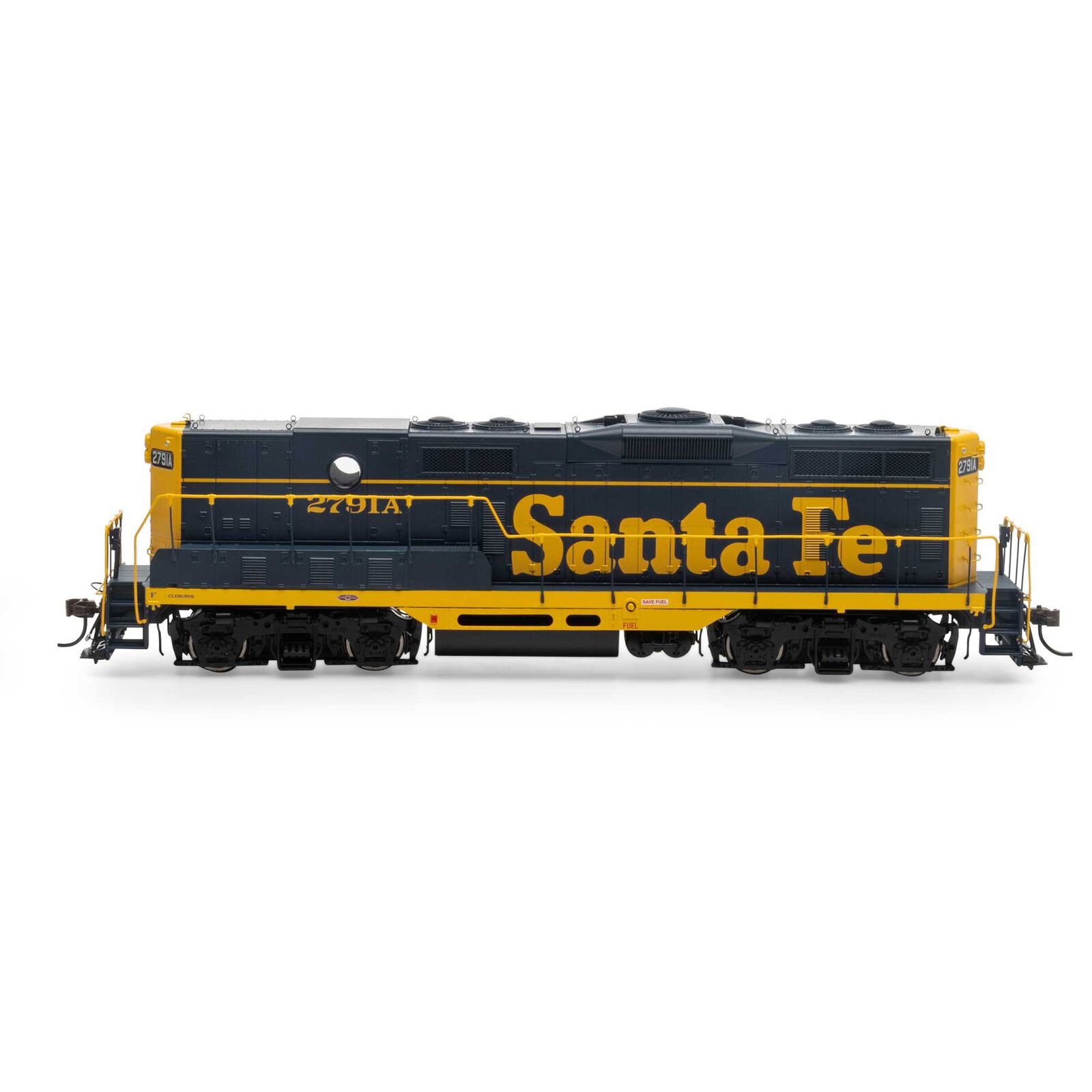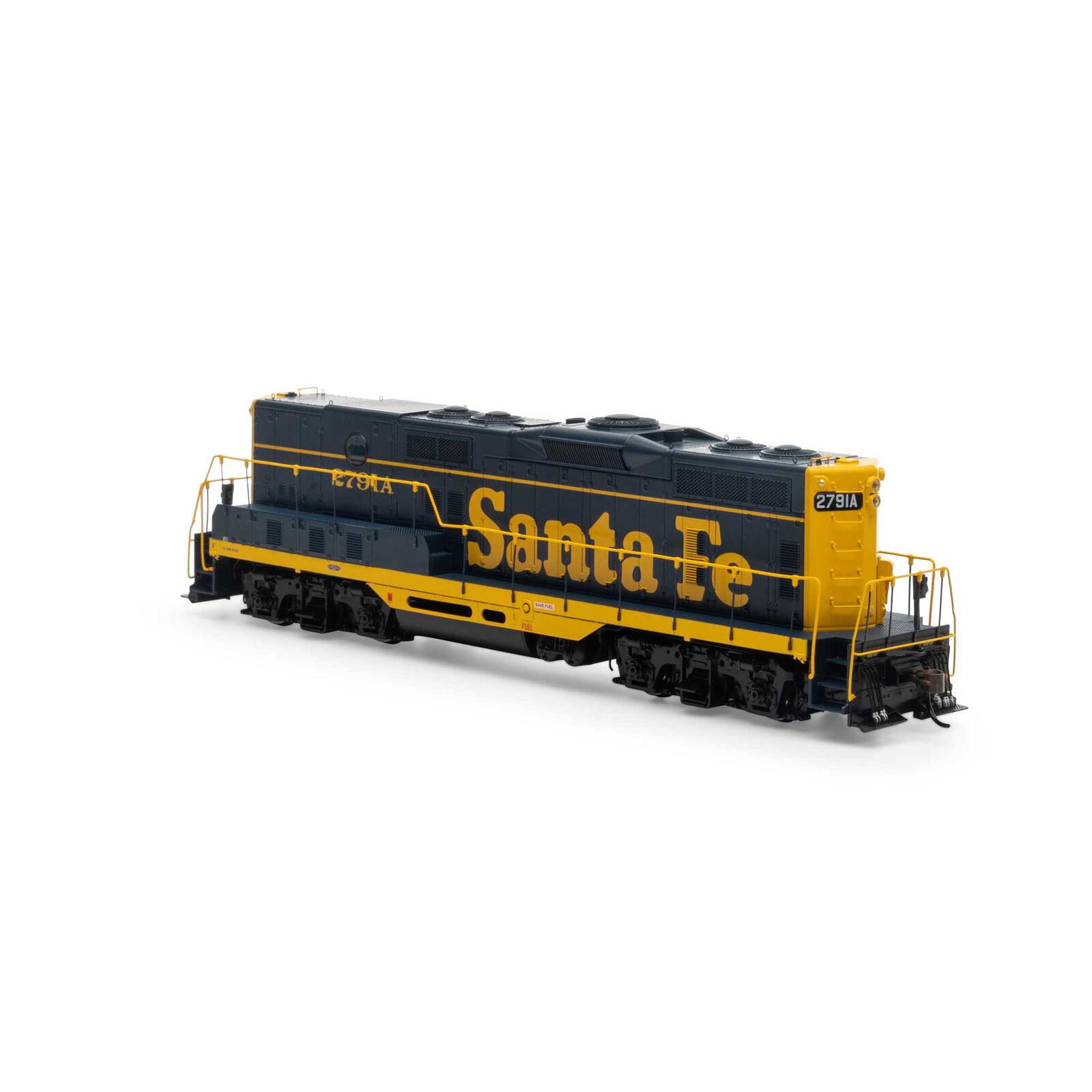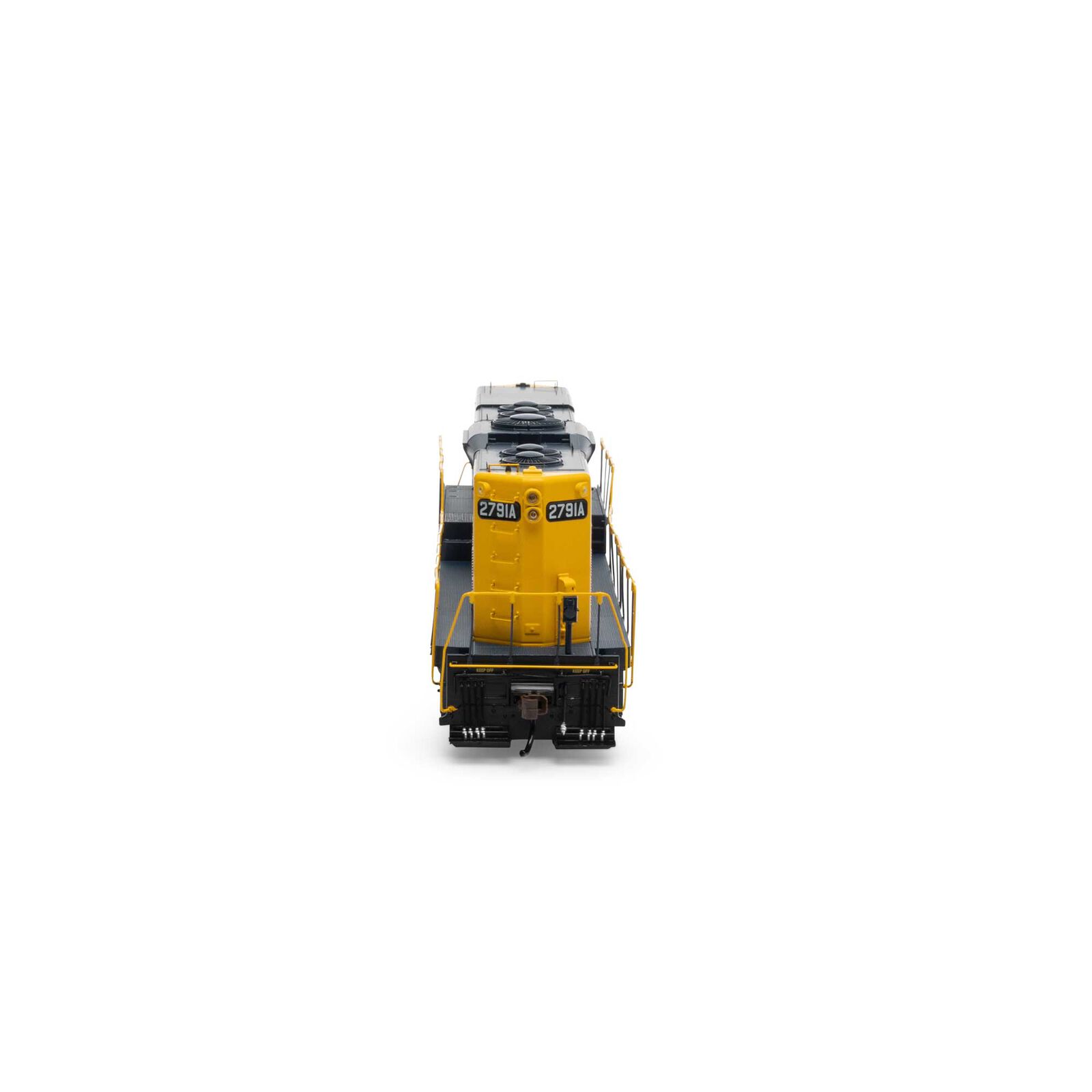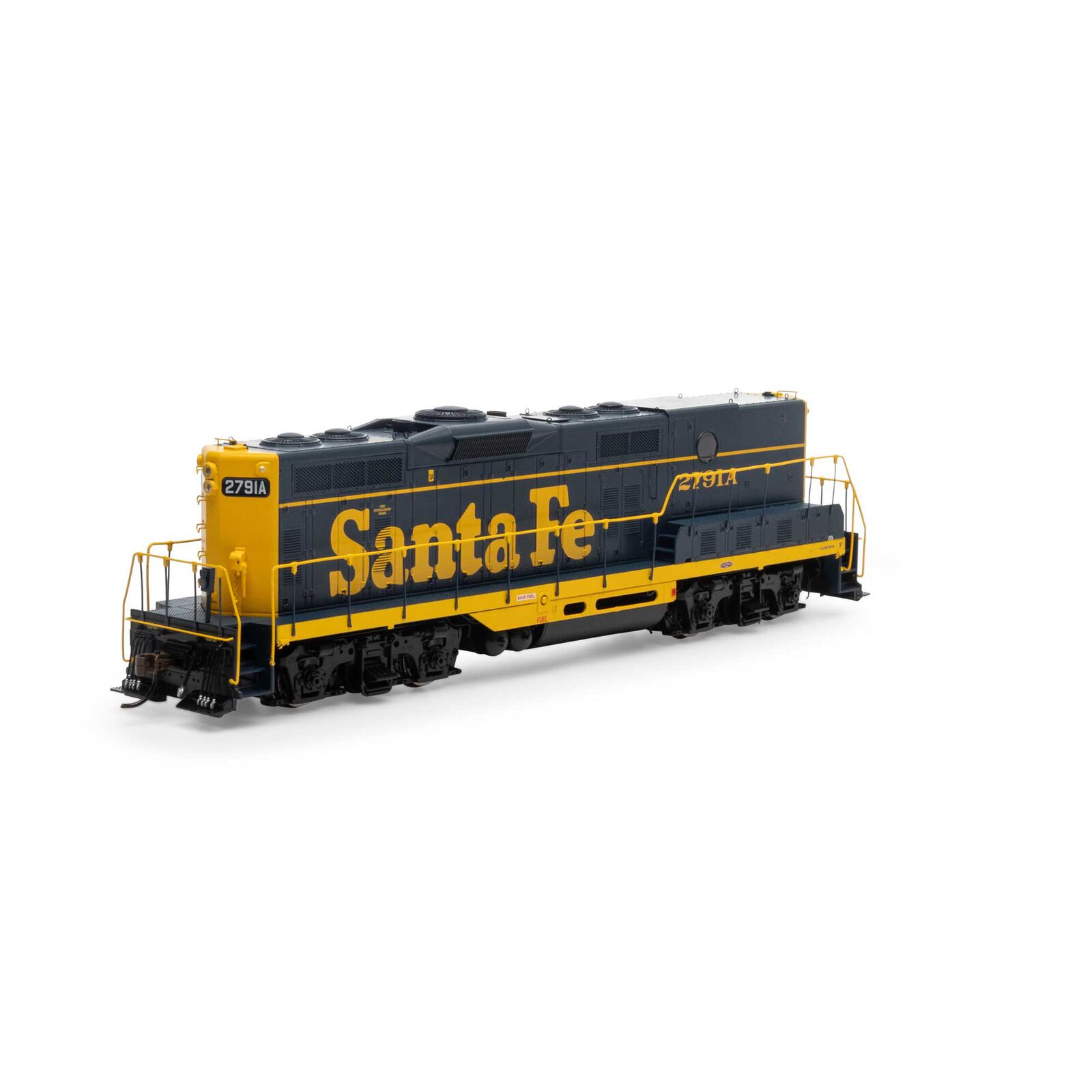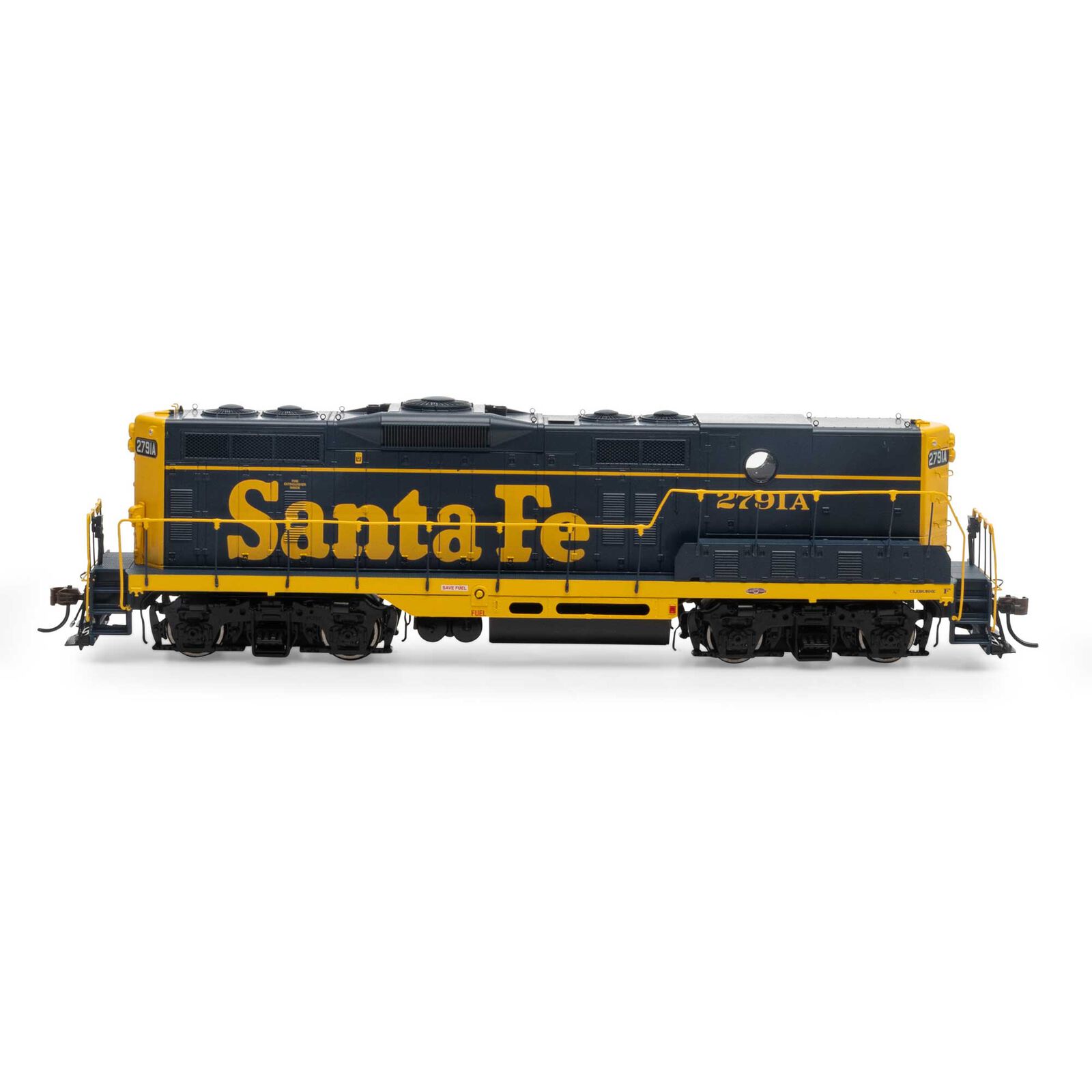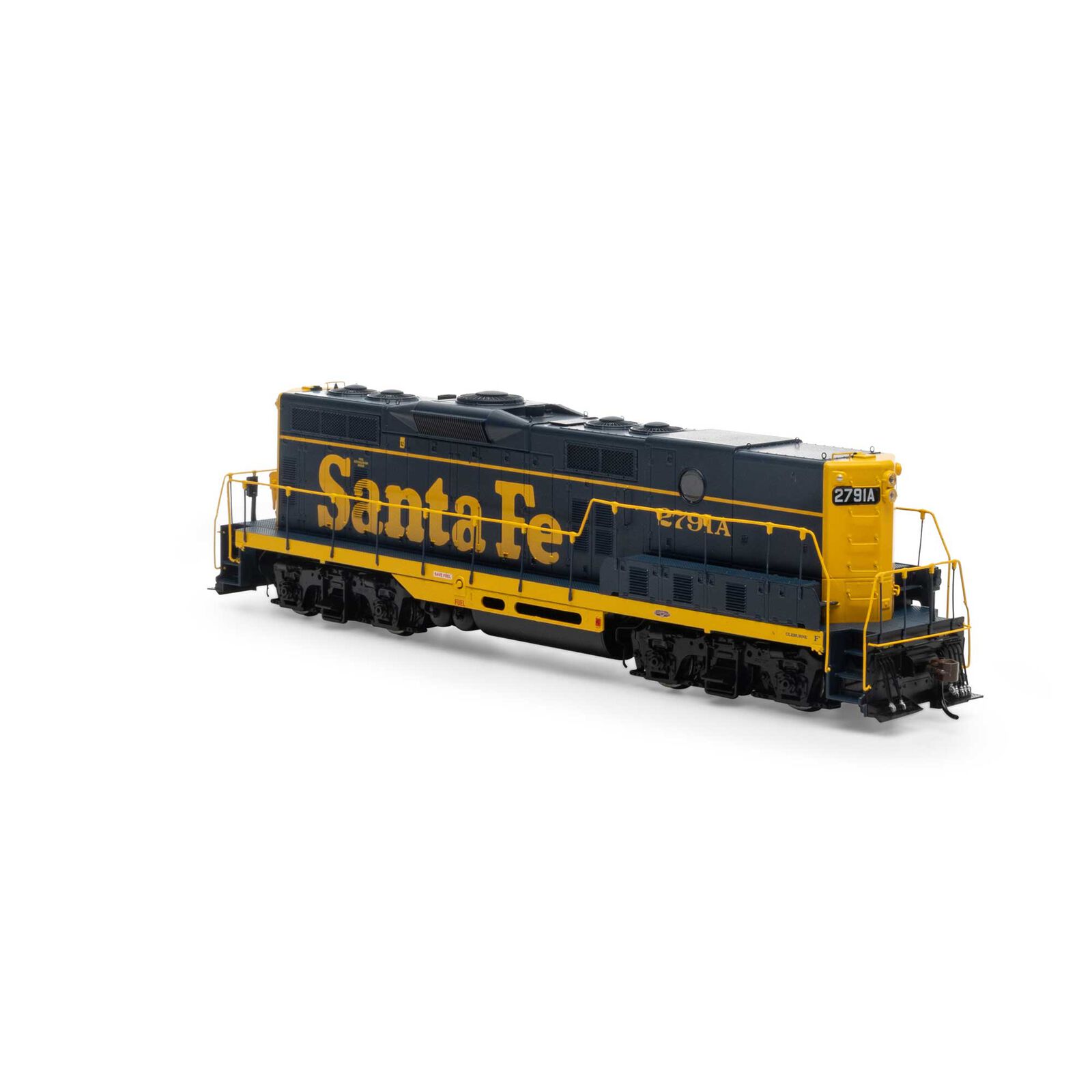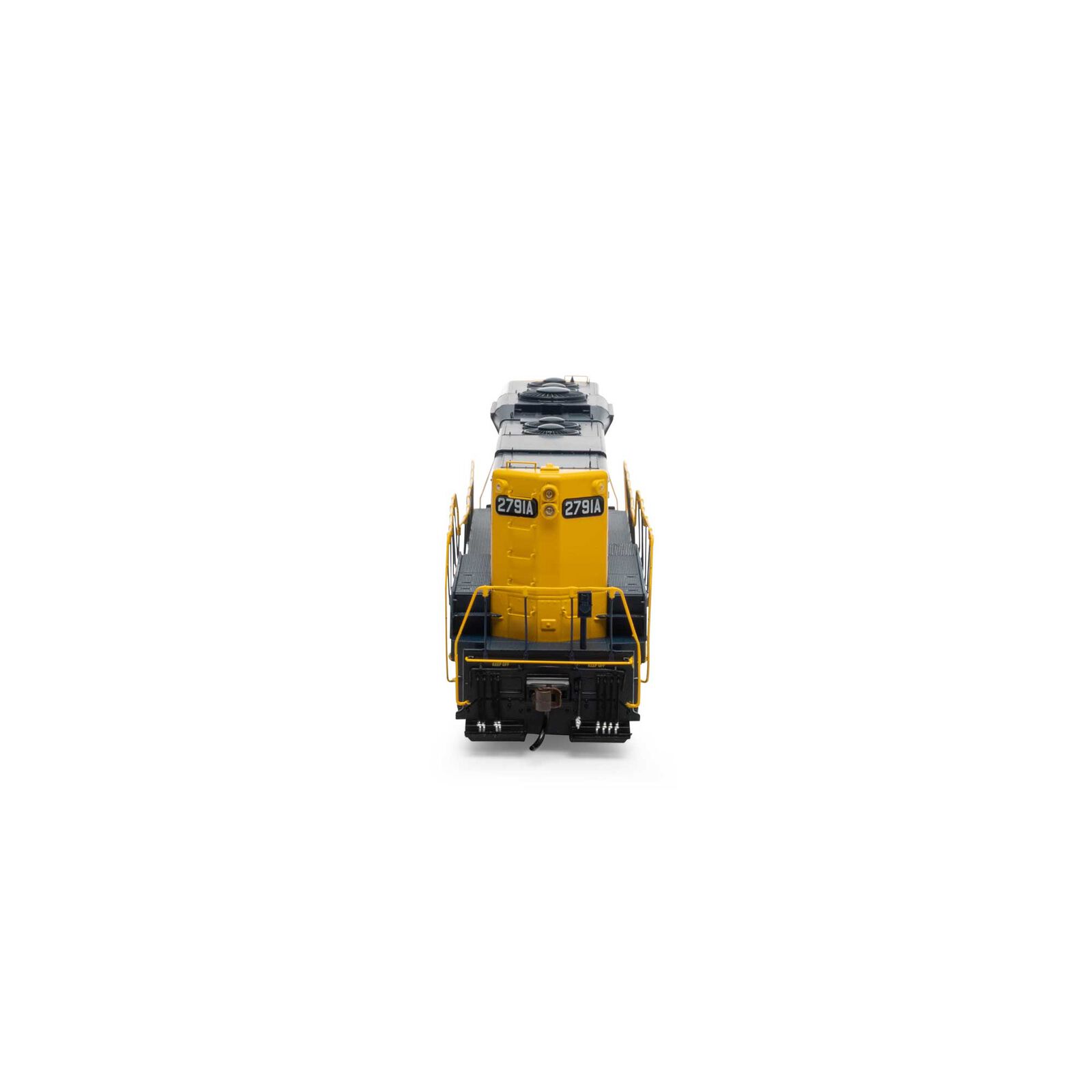ATSF FEATURES:
- Early Leslie dual “Blatt” style horns
- Two different Santa Fe lettering styles
- Correct parts placement per road number
- ATSF spark arrestors provided in poly bag
- Canvas sunshades
Liking the performance of their EMD F units, Santa Fe wanted reliable road switchers that could provide better visibility and share components with their other EMD brethren. Between 1950 and 1953, they ordered 244 GP7’s. During the 1960’s, Santa Fe started to repaint their fleet of GP7’s into a more simplified scheme to help on paint masking costs. They were the only purchaser of a small batch of GP7B’s and were usually mated to a like road numbered A units. By the 1960’s, they could be found running with other units in switching assignments. Into the 1970’s, the fleet of GP7’s would end up being rebuilt into “GP7u’s” with fully rebuilt cabs, electrical components, and prime movers. Their B units received cabs in the process.
Since Santa Fe was known for changing out spark arrestors, we included them in a poly bag for the modeler to install to match your modeling era.
ROAD NUMBER SPECIFIC FEATURES:
#2698- Non-Dynamic brakes
- Late pre-rebuild faded version
- removed foot boards
- late coupler levers with notched pilots, “Can” antenna with stand right side of cab
- Non-Dynamic brakes
- repaint with yellow handrails and blue stanchions
- full foot boards
- “Can” antenna with stand left side of cab#2819
- Non-Dynamic brakes
- repaint with blue handrails and yellow ends
- full foot boards
- “Can” antenna with stand left side of cab#2791A
- B unit
- Dynamic brakes
- repaint with yellow handrails and blue stanchions
- full foot boards
GP7 SERIES LOCOMOTIVE FEATURES:
- Coupler cut levers
- Trainline and MU hoses
- Drop steps unless noted
- MU stands
- “Nub” style walkway tread
- Windshield wiper
- Lift rings
- Wire grab irons
- Windshield wipers
- Sander lines
- Bell placement & type per prototype
- Detailed fuel tank with fuel fillers, fuel gauges, breather pipes, and retention tanks
- Blomberg-B trucks with appropriate bearing caps
- Speed recorder unless noted
- See-through cab windows and full cab interior
- Fine-scale Celcon handrails for scale appearance
- Etched metal radiator intake grilles and fan grilles
- Air tanks mounted below sill unless noted
- Body-mounted McHenry® scale knuckle couplers - Kadee® compatible
- DCC-ready features Quick Plug™ plug-and-play technology with 21-pin NEM connector
- Scaled from prototype resources including drawings, field measurements, photographs, and more
- Accurately painted and printed paint schemes
- Genesis driveline with 5-pole skew wound motor, precision machined flywheels, and multi-link drivetrain
- All-wheel drive with precision gears for smooth & quiet operation
- All-wheel electrical pickup provides reliable current flow
- Wheels with RP25 contours operate on all popular brands of track
- LED Lighting for realistic appearance
- Heavy die-cast frame for greater traction and more pulling power
- Packaging securely holds for the model for safe storage
- Minimum radius: 18”
PRIMED FOR GRIME MODELS FEATURE:
- Duplicated look and feel of “In Service” equipment
- Faded base colors matched to the prototype
- Perfect starting point for adding grime and rust
SOUND EQUIPPED MODELS ALSO FEATURE:
- Onboard DCC decoder with SoundTraxx Tsunami2 sound
- Dual cube speakers for optimal sound quality
- Sound units operate in both DC and DCC
- Full DCC functions available when operated in DCC mode
- Engine, horn, and bell sounds work in DC
- All functions NMRA compatible in DCC mode
- Precision slow speed control
PROTOTYPE SPECIFIC INFORMATION:
In 1949, EMD introduced the GP7. The basic design followed most diesel switchers with the addition of a short hood instead of an end-cab. The hoods were also full height to better accommodate the diesel engine and mechanical and electrical components.
In 1954 EMD upgraded the GP7 to become the 1,750 horsepower GP9. Externally, the first GP9s were virtually unchanged from the last GP7s. Later versions would include different louver arrangements and the last ones would come without the frame skirting. The GP9 was available with all of the fuel tank, steam generator, and dynamic brake options as the GP7, including “torpedo tube” air tanks mounted on the roof.
Many railroads chose to rebuild their GP7s and GP9s for continued service. Often times, it was cheaper to do this rather than purchasing brand-new locomotives.
